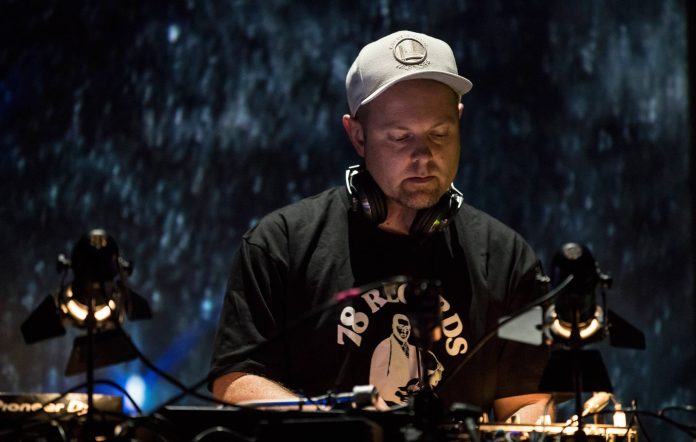
DJ Shadow has shared his thoughts on the current touring crisis, saying the industry is close to “extinction”.
Writing on Facebook on Wednesday (November 20), DJ Shadow reflected on his recent tour, saying it was “decidedly different from prior runs, in both positive and negative ways.”
“I found myself constantly weighing the changes, not only as they affect me, but other musicians and the touring industry as a whole,” he added, highlighting an increase in costs associated with touring. “It’s also WAY more expensive to get from point A to point B. I joke about it with my crew sometimes, but it’s true: almost all of my money goes to the travel sector.
“And yet, I’m also aware that many of the venues I played this year are struggling financially. I don’t think it’s an over exaggeration to say that the touring industry as we know it is one more global crisis away from extinction.”
He went on to highlight the physical impact of touring, saying: “At my age, touring ain’t as easy as it used to be. There’s aches and pains that didn’t used to be there, and it takes a total commitment to conserve energy for the show; not always easy when sleep or nourishment become disrupted.”
He concluded, writing: “So where does that leave us? Well, for myself, I can only control my own thoughts and actions. I still love touring, still love making music. After the Australia and Japan dates next February, it’ll be time to build something new, and when I’m ready to head back out, I hope the promoters, venues, and fans will still be there.
“Until then, I’ll continue to appreciate every opportunity as it comes… and maybe check out a show or two to remind myself what a precious and powerful thing live entertainment can be.”
Shadow’s comments point to a wider crisis facing the touring industry. For venues, 2023 proved to be “disastrous” and the worst year on record with 125 grassroots music venues shutting their doors. This is despite recent findings that the music industry contributed a record £7.6billion to the country’s economy the same year.
Music Venue Trust (MVT) has also suggested we’re facing a potential “complete collapse of touring” as a result of the recent budget announcement that introduces £7million in new premises taxes. MVT says that this will place 350 grassroots music venues at immediate risk of closure – threatening more than 12,000 jobs, over £250million in economic activity and the loss of over 75,000 live music events.
In hopes of securing a future for live music, the government recently backed a levy on gigs at arena level that will see the UK’s smaller venues and rising artists receive a contribution from bigger gigs.
The model, similar to the one seen in the Premiere League of football and already in use in several countries across Europe, was recommended by MPs after a DCMS investigation back in Spring.
Major artists like Coldplay, Enter Shikari, Sam Fender and most recently Katy Perry have all adopted a levy on their upcoming UK tours, and now there are increased calls for a clear deadline for the industry to take urgent action.

The closures of venues create a larger issue in the industry, impacting touring artists trying to reach new audiences and gig-goers seeking new music.
Earlier this year, David Martin of the FAC – a trade union body representing the needs of musicians and artists in the UK, wrote to NME to highlight this, saying that even if venues remain open, many artists can no longer afford to play them.
“Even those playing to relatively modest audiences have to bear substantial costs to tour the UK – from transportation, accommodation and rehearsals to paying the salaries of musicians, crew, production, agents and managers,” he said. “That’s on top of recording, and the increasing demands of promotion – all activities which create the demand for shows in the first place.”
This was echoed by English Teacher‘s Lily Fontaine earlier this year, when she spoke at a Parliamentary session, and explained how artists are facing “a crisis in terms of funding” and being able to support themselves.
“There is a lack of funding for musicians to create music,” said Fontaine. Giving a long list of outgoing expenses faced by artists, Fontaine mentioned studio time, rehearsal space, tour managers, engineers, van hire, musicians, non-artist fees, driver fees, accommodation, travel, carnets, visas, insurance, equipment, food, drink and photography to name a few.
Elsewhere, at the start of this year, artists reflected on the challenges they faced in 2023 and their hopes for 2024. This included hopes for a streaming royalties reform, the application of AI in music, the 100 Per Cent Venues campaign to end punitive commissions on merchandise sales, and the #LetTheMusicMove campaign to encourage friction-free international touring.

Miley Cyrus has said there is a “fatal flaw” in the copyright infringement lawsuit against her song ‘Flowers’.
In September, a suit was filed in a Los Angeles court by Tempo Music Investments claiming that the Grammy-winning song included an unauthorised “exploitation” of Bruno Mars’ 2013 track ‘When I Was Your Man’.
Cyrus’ co-writers Gregory Hein and Michael Pollack were also named in the suit, as well as Sony Music Publishing, Apple, Target, Walmart and other companies who were accused of distributing the track.
Tempo Music said that they own a portion of ‘When I Was Your Man’ after purchasing it from Mars’ co-writer Phil Lawrence. The company is seeking damages and has demanded a court order that prohibits Cyrus from reproducing, distributing or publicly performing the song.
In her first response to the suit, Cyrus has claimed that the case has a “fatal flaw” in the fact that Mars and his other co-writers have chosen not to sue, and so has called for the suit to be dismissed.
“Plaintiff unambiguously [says] that it obtained its claimed rights in the ‘When I Was Your Man’ copyright from only one of that musical composition’s four co-authors,” said Cyrus’ attorney Peter Anderson. “That is a fatal and incurable defect in plaintiff’s claim.”
Their argument is that Tempo’s acquisition of “partial interest” of the song from Lawrence only gives them “non-exclusive rights” to it, and under US copyright law this does not give him “standing” to sue.
“Plaintiff brings this copyright infringement action alone – without any of that musical composition’s co-authors or other owners,” Anderson continued. “Without the consent of the other owners, a grant of rights from just one co-owner does not confer standing.”
In response to the claims, Tempo Music lead counsel Alex Weingarten told Billboard that the motion was “intellectually dishonest” and that they did in fact have standing to sue.
“They’re seeking to make bogus technical arguments because they don’t have an actual substantive defence to the case,” said Weingarten. “We’re not an assignee; we’re the owner of the copyright. The law is clear that we have the right to enforce our interest.”
The original lawsuit stated: “Any fan of Bruno Mars’ ‘When I Was Your Man’ knows that Miley Cyrus’ ‘Flowers’ did not achieve all of that success on its own. ‘Flowers’ duplicates numerous melodic, harmonic, and lyrical elements of ‘When I Was Your Man,’ including the melodic pitch design and sequence of the verse, the connecting bass-line, certain bars of the chorus, certain theatrical music elements, lyric elements, and specific chord progressions.”
It continued: “It is undeniable based on the combination and number of similarities between the two recordings that ‘Flowers’ would not exist without ‘When I Was Your Man,’” the complaint, which names Cyrus’ fellow songwriters Gregory Hein and Michael Pollack as co-defendants, continued. “With ‘Flowers’, Cyrus, Hein, and Pollack have created a derivative work of ‘When I Was Your Man’ without authorisation.”
Released in 2023 as the lead single from her eighth studio album ‘Endless Summer Vacation‘, ‘Flowers’ peaked at Number One on the UK Charts as well as the Billboard US Hot 100. It spent eight weeks at Number One in the US last year, and 10 weeks in the UK. ‘Flowers’ was the best-selling global single of 2023 and earned Cyrus two Grammys for Record Of The Year and Best Pop Solo Performance earlier this year.